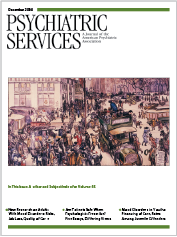What would it be like to enter the static world of prison during one's late teens and then assimilate back into a dynamic community and family 25 years later? This is one of the central questions addressed in Mary McGarry Morris's fifth novel, A Hole in the Universe.
Gordon Loomis (with apropos nicknames of "Gloomis" and "Loomer"), who is the protagonist of the novel, finds that freedom is a relative term for a "three hundred and fifty pounds, six and a half feet tall" man who was convicted of a senseless murder committed in his youth. Thinking of the "twenty-four inviolable inches" that he could always claim in prison, he moves back into his deceased parents' home looking for familiarity and somewhere he can be left alone. Instead, he finds a new and foreign neighborhood rampant with crime and a series of relationships pressed upon him, of which he is unsure he wants to be a part.
Where Morris succeeds most with this novel is in her portrait of an institutionalized individual who is forced to decide on the degree to which he wants to participate in relationships and life. His passivity inevitably entangles him with his antithesis, Delores Dufault, who becomes his partner by "default" due to her blind generosity and persistence. She is a maternal and mildly histrionic woman who has patiently waited through Loomis' prison sentence and lack of emotional reciprocity in hopes of finding a connection. As if the attentions of Dufault weren't enough, Loomis is also confronted and perplexed by the neediness of a precocious 13-year-old named Jada Fossum, who lives largely unparented as a result of her mother's crack cocaine addiction in the house across the street from him. The juxtaposition of these larger-than-life female characters with Loomis works, because although they are all marginalized individuals, the females pine for attachment as strongly as Loomis longs to preserve the comfort he derives from being alone.
The aspect of the novel that is less successful is Morris's caricatured depiction of Loomis' neighborhood, filled with large, shaved-headed men wearing gold earrings, driving SUVs, selling crack cocaine, and sporting snake tattoos. The neighborhood becomes a symbol of degeneracy that the community largely ignores, contrasted with the murder in which a younger Loomis was involved that the community seems unable to forget. Unfortunately, the descriptions of the neighborhood and the lost souls who inhabit it are so extreme and theatrical that they only take away from the development of the more interesting characters. Even for readers who have dealt extensively with child abuse and neglect, Fossum's life in the second half of the book may require a large degree of suspension of disbelief. However, the central characters are strong enough that it is likely that this book will appeal to a wide range of individuals in the field of mental health who are interested in reading a sympathetic fictionalized account of the effects of institutionalization on an individual returning to a community.

